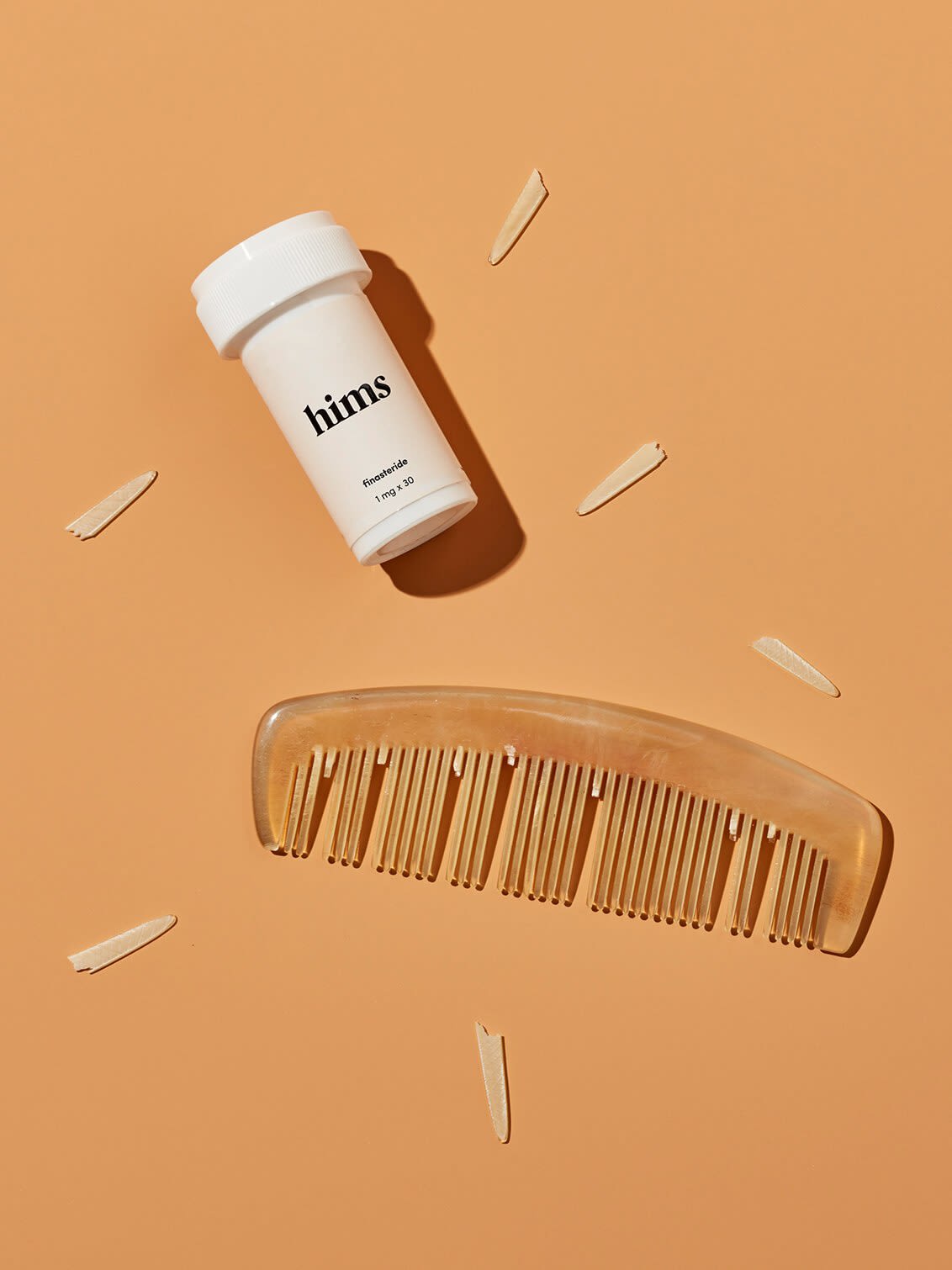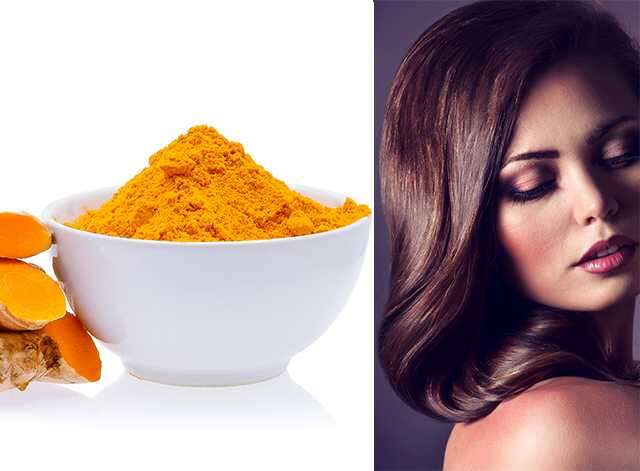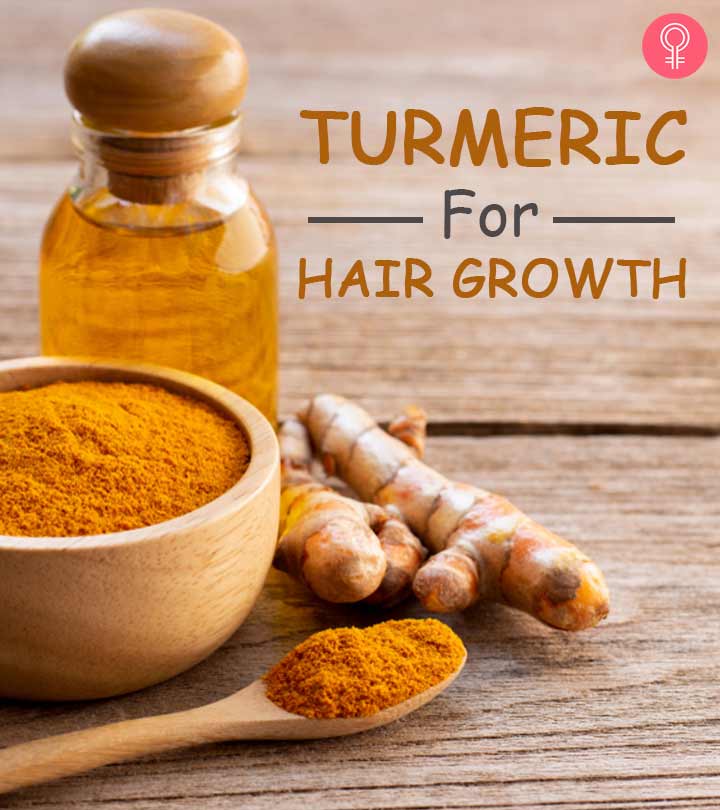
A plant in the ginger family, turmeric has long been popular as a dietary supplement for treating allergies, digestive issues and infections.
It’s also occasionally recommended as a natural option for getting rid of dandruff, reducing scalp inflammation and even stimulating hair growth.
Although the science on turmeric’s hair-related effects is mixed overall, some research suggests that it may offer benefits for your hair and scalp.
Below, we’ve looked into the science on turmeric to explain what it is, how it works and the main benefits it may offer for your general health and hair.
We’ve also explained how you can safely add turmeric to your hair care routine, as well as side effects and safety issues that you should be aware of before using turmeric products.
What Is Turmeric?
Turmeric is a plant in the ginger family. It’s native to Southeast Asia and has a long history as an ingredient in traditional Chinese and Ayurvedic medicine.
You may have seen turmeric referred to as Curcuma longa, or as Indian saffron.
Historically, turmeric has been used in health tonics for joint issues and disorders that affect the skin, digestive system and upper respiratory tract.
Today, most commercial turmeric is grown in India. The rhizome, or stalk, of turmeric is typically used as a culinary spice.
It’s also used as an active ingredient in dietary supplements, including capsules, tinctures and teas.
Over the last few decades, turmeric has grown in popularity as a natural ingredient for skin and hair care.
As such, it’s increasingly found in facial creams, balms and therapeutic shampoos.
Most of turmeric’s popularity in natural health circles stems from its curcumin content. Curcumin is a natural antioxidant and the main compound in turmeric.
It provides turmeric with its strong yellow color and is known to possess anti-inflammatory properties.
Health Benefits of Turmeric
Turmeric has long been treasured for its health effects. In Chinese and Ayurvedic medicine, it’s been used as an antiseptic, as an anti-inflammatory agent, to improve digestion and for treating a variety of ailments, such as infections and arthritis.
While modern research on turmeric is limited, several studies have found that it may offer health benefits, including the following:
- Reduced inflammation. Curcumin, which is one or several chemicals found in turmeric, has anti-inflammatory properties. Researchers believe that these may potentially play a role in treating and preventing diseases caused by chronic inflammation.
- Antimicrobial effects. Some research suggests that turmeric may inhibit the growth of certain types of histamine-producing bacteria. It may also stop the growth of foodborne pathogens and certain types of infectious fungi.
- Antioxidant properties. Curcumin also has antioxidant properties, meaning it may help to reduce or prevent the oxidative damage that can contribute to cellular damage, aging and several forms of disease.
- A reduced risk of heart disease. Because of its effects on inflammation and oxidative stress, researchers believe that curcumin may help to protect the cardiovascular system and reduce people’s risk of developing heart disease.
- Improvements in arthritis symptoms. Curcumin has been studied as a treatment for arthritis, possibly due to its anti-inflammatory effects. Research has found that it helps with certain arthritis symptoms, such as osteoarthritis pain.
- Clearer, smoother skin. Research suggests that curcumin can help to treat some skin conditions. Studies have also found that curcuma oil, which is produced using a plant that’s related to turmeric, may treat issues such as dark spots on the skin.
It’s important to note that high quality research on turmeric is limited, meaning we don’t have a lot of data on its effects.
Many studies of turmeric and curcumin rely on tissue samples, as well as research carried out on animals rather than on humans.
Some studies also use large amounts of turmeric and curcumin, far beyond what a person will typically ingest through their diet.
As such, it’s best to think of these as potential benefits of turmeric, rather than proven ones. As more research on turmeric becomes available, we’ll find out more about what it can and cannot do within the human body.
Does Turmeric Have Benefits for Your Hair?
Although research on the relationship between turmeric and hair is limited, a few studies have found that it may offer benefits for hair growth and scalp health.
For example, research has found that topical turmeric can help to treat scaling, rash and other symptoms of scalp psoriasis, a skin condition that may cause temporary hair shedding.
Some early-stage studies also suggest that curcumin and its analogues may help to reduce the amount of testosterone and DHT in your body.
In a study published in the journal Cancer Science, researchers found that curcumin decreases testosterone and dihydrotestosterone (DHT) levels in prostate cancer cells.
This may be relevant for treating hair loss, as DHT is involved in both prostate growth and in the miniaturization of hair follicles that causes androgenetic alopecia, or male pattern baldness.
If you’re genetically predisposed to male pattern baldness, DHT can bind to androgen receptors located in your scalp and cause your hair follicles to stop growing new hairs.
Our guide to DHT and male hair loss explains this process in more detail.
While this study’s findings are certainly interesting, it has several limitations that mean we can’t conclude that turmeric is an effective treatment for hair loss just yet.
First, the study was performed on a combination of human cells and mouse prostate tissue in a lab setting, not on living people.
Second, the fact that curcumin reduces DHT levels in prostate tissue doesn’t necessarily mean that it will have the same effect on the scalp.
Interestingly, other studies involving plant treatments that are similar to turmeric have produced similar results.
For example, a study published in the Journal of Dermatological Treatment in 2012 found that a combination of Curcuma aeruginosa and topical minoxidil, a hair loss medication, produced hair growth in men with male pattern baldness.
However, it’s important to note that the Curcuma aeruginosa and minoxidil were also effective at producing some degree of hair growth when used on their own.
Overall, while there isn’t much research on turmeric and hair growth, the findings available from existing studies are certainly promising.
However, there isn’t yet any definitive, large-scale research that shows a link between turmeric and hair growth.
As such, it’s best to view turmeric as a maybe, rather than as a proven option for treating hair loss and stimulating hair growth.
Is Turmeric Safe? Does It Cause Side Effects?
Turmeric is generally a safe ingredient. However, like any supplement, it’s important to use it as recommended in order to avoid side effects and safety issues.
According to the National Center for Complementary and Integrative Health (NCCIH), curcumin and turmeric products are considered “probably safe” when used orally or applied to the skin in the recommended amounts.
When it’s consumed in large quantities, turmeric can cause digestive problems such as nausea, diarrhea and abdominal pain.
When it’s applied directly to the skin, turmeric can cause contact dermatitis and/or urticaria (hives).
Reported side effects of curcumin may include headache, diarrhea, rash, yellow stool and increases in your levels of certain enzymes, including alkaline phosphatase and lactate dehydrogenase.
You may be more likely to develop side effects from turmeric or curcumin if you have an existing allergy to plants of the Curcuma genus.
To reduce your risk of side effects, make sure to only take turmeric and/or curcumin products at the recommended dosage.
If you experience side effects that are persistent or severe, it’s best to talk to your healthcare provider for personalized assistance and advice.
Finally, although it may not necessarily be classified as a side effect, it’s important to be aware that turmeric is quite a powerful natural dye.
This means that it can easily stain clothing. Whether you’re cooking with turmeric or applying it to your skin, make sure not to let it get on your clothes, towels or any other items that you don’t want to take on a yellow color.
Treating the hair with turmeric can keep the scalp healthy, which is a key component in healthy hair and new hair growth.” Controls oil: “Turmeric is great for treating oily hair and scalps due to its anti-inflammatory and anti-microbial properties,” Engelman says
Expert opinion from Kenny Putri Kinasih
Bachelor’s degree Nutrition · 3 years of experience · Indonesia
Turmeric contains antimicrobial and antifungal compounds. These compounds can inhibit the growth of fungi that cause dandruff. Therefore, using turmeric can help protect and scalp from dandruff.
→ See more questions and expert answers related to Turmeric.
→ Love Turmeric? Get nutritional facts, tips from health experts, and more
Expert opinion from Momoko Takada
Bachelor’s degree Nutrition · 3 years of experience · Japan
It is said that curcumin contained in turmeric works in a similar way to the ingredient used in medicines for male pattern baldness. It is also expected to suppress the function of male hormones and reduce the progression of thinning hair and hair loss.
→ See more questions and expert answers related to Turmeric.
→ Love Turmeric? Get nutritional facts, tips from health experts, and more
Expert opinion from Mantwa Radebe
Master of Science (MSc) In Nutrition · 12 years of experience · South Africa
Turmeric contains a natural active substance called Curcumin. Curcumin prevent the overproduction of a hormone called dihydrotestosterone. This hormone is known to be responsible in causing hair loss which prevent a new hair growing from the follicles. So hair products made of curcumin can help with hair growth, however more research need to be conducted on this health benefit.










